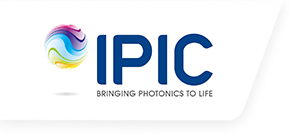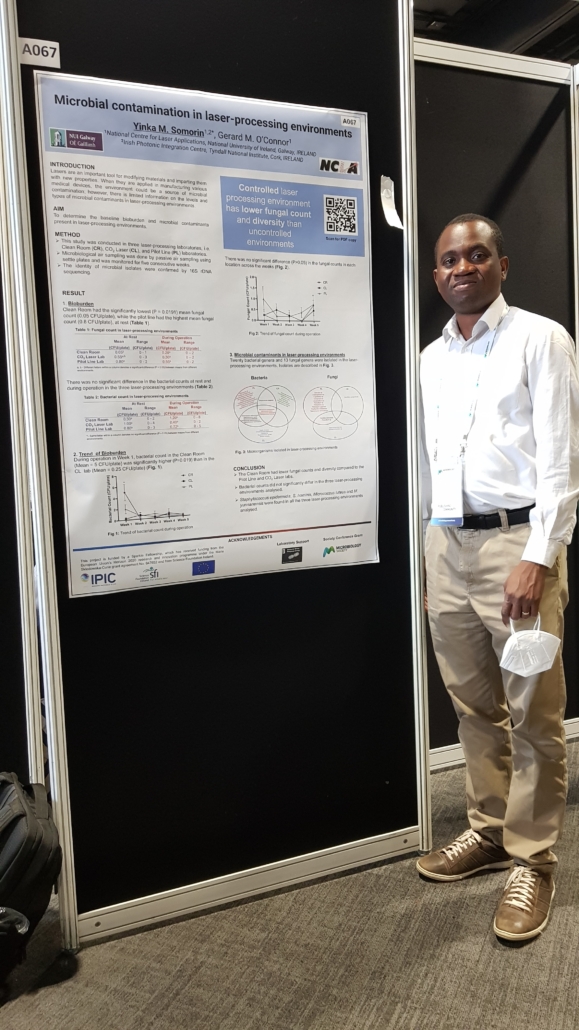I am Yinka Somorin. I am a Nigerian and currently a Sparkle Marie-Curie Fellow based at the University of Galway.
I studied Sciences at secondary school in Nigeria. I liked sciences and any science course would have been good enough at the university. But by some act of providence, I was admitted to study Microbiology. I came to enjoy the course and was fascinated by how microorganisms behave (in a good and bad way!).
There were lots of influences in my choice to become a scientist. First, reading from my Introductory Microbiology textbook, I was fascinated by how scientists engineered bacteria to clean up oil spills. Then I was fortunate to be supervised by a leading academic, Prof Samuel Bankole, from whom I learnt research and how it can impact lives. Under Professor Bankole’s supervision, I attended international conferences where I met scientists from different parts of the world and listened to their research and what they do in their different roles. I also loved to teach and enjoyed when I ran tutorials and explained concepts from lectures to colleagues. Those exposures connected with a conviction that I would follow an academic career.
My academic journey has been quite interesting, taking me through different research topics, areas of application and mobility. After obtaining my BSc (Microbiology) and MSc (Food and Industrial Microbiology) degrees in Nigeria, I was fortunate to be funded by an EU FP7 project to work as a Visiting Researcher to study fungi and toxins they produce (mycotoxins) in a Nigerian staple food at the Università Cattolica del Sacro Cuore in Piacenza, Italy in 2010. Upon my return to Nigeria, I became a self-funded PhD student (the usual situation for postgraduate students in Nigeria) and was providing teaching and research assistance before I was fortunate to get a College of Science PhD Fellowship at the then National University of Ireland, Galway (now University of Galway) to start a PhD in Microbiology in 2012. My PhD focussed on understanding how E. coli was able to survive in external environments, particularly soil.
After completing my PhD in 2017, I left Ireland for the UK and worked as a Visiting Lecturer in Medical Microbiology at the University of Bedfordshire and briefly as a Research and Development Scientist at Mast Diagnostics. In 2018 I joined Queen’s University Belfast as a Research Fellow on a project where I worked with industrial and clinical partners to develop and test a new molecular diagnostic test for urinary tract infections and antimicrobial resistance. At the height of the COVID-19 pandemic, the research group I worked with led wastewater surveillance in Northern Ireland, and I was involved in running the SARS-Cov-2 testing for healthcare workers and special school pupils in Northern Ireland. It was on this role I started building my interest in understanding antimicrobial resistance within different contexts and exploring novel technologies for controlling microorganisms and microbial infections. This was what led me to apply for the Sparkle fellowship and to develop competencies in exploring light to control pathogenic bacteria and to develop novel medical devices.
My advice is that people should start from what questions interest them. What you are passionate for could be a pointer to the career path to follow. I love helping people develop skills and pointing them to where they could find answers. So, along with my core research, I have been involved in researcher development through running workshops and training to help people develop essential research skills and supporting younger students in my community. Seeking information on different career paths and finding role models in those areas you are considering could also go a long way to motivate you along that path.
Sparkle has received funding from the European Union’s Horizon 2020 research and innovation programme under the Marie Sklodowska-Curie grant agreement No. 847652 and from Science Foundation Ireland.






